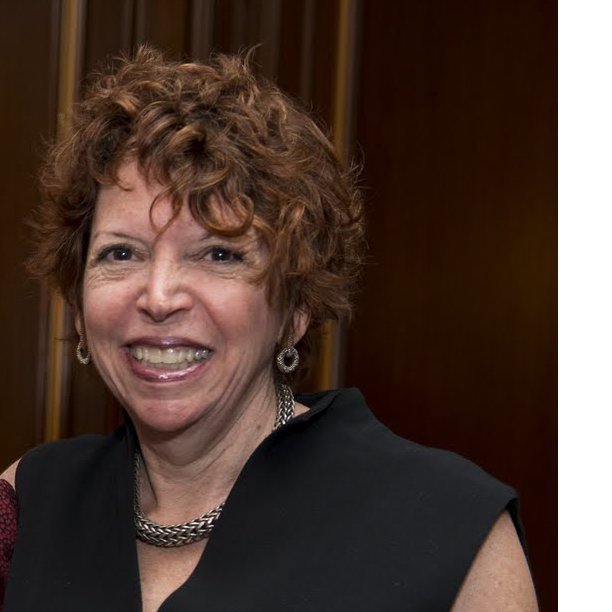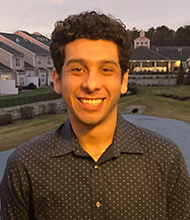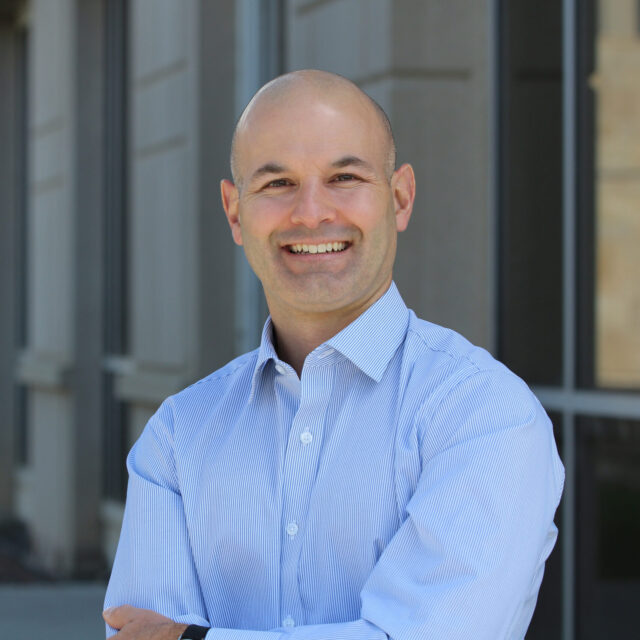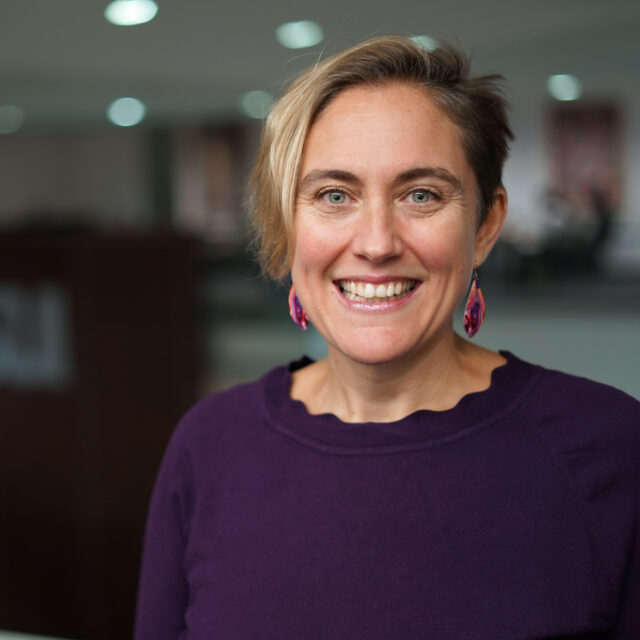Dr. Linda Teplin and Nicholas Meyerson: Studying Successful Community Reentry for Youth in the Juvenile Justice System
1.19.2022
Note: The views, opinions, and content expressed in this product do not necessarily reflect the views, opinions, or policies of Everytown.
Being injured by a gun or threatened with any weapon during adolescence significantly increases the chances of perpetrating gun violence in adulthood. This was among the most important findings of the Northwestern Juvenile Project, a study that has examined how to facilitate a successful reentry into the community and transition into adulthood for adolescents in the juvenile justice system. This project is the first large-scale longitudinal study of mental health needs and outcomes of juvenile justice youth after detention.
Over the course of nearly 20 years, researcher Linda Teplin, PhD, followed 1,829 randomly selected children and teens, ages 10–18, from the Cook County Juvenile Temporary Detention Center to understand the connection between gun involvement early in life and the perpetration of gun violence in adulthood.
“Youth who were shot as an adolescent had 2.4 times the odds of perpetrating gun violence in adulthood. We also found that being threatened with or injured by a weapon predicted owning a gun in adulthood,” Dr. Teplin said. “We now know that if we can reduce exposure when kids are young, we can reduce gun violence overall.”
“Clearly, being victimized during adolescence has consequences,” Teplin continued. “Youth victimized at school may perform poorly, cut classes and ultimately drop out, limiting their employment opportunities. They may then join gangs or sell drugs, increasing their exposure to high-risk situations. Finally, exposure to violence — whether in the home, at school or in the streets — may cause youth to carry firearms to protect themselves. In this way, victims become perpetrators.”
Learn more about the work of Dr. Teplin and doctoral student Nicholas Meyerson in their own words.
Dr. Linda Teplin:
When we began studying adults in jail about 30 years ago, I was struck by two themes: First, that most people had developed psychiatric symptoms and other problems when they were kids. Second, the pervasive poverty and disproportionate numbers of people of color in the justice system. It was a logical step to decide to study youth in detention.
Early on, we realized that violence and victimization were nearly everyday occurrences in the lives of our participants. So we began to focus on death rates, victimization, and the perpetration of gun violence. Because we had data on a large group of young people over time, we had an ideal opportunity to examine how involvement with guns during adolescence and teen years affected the subsequent perpetration of gun violence in adulthood. We also had an unusual opportunity: Researchers rarely have a chance to examine patterns of behavior in people as they age. Longitudinal studies are expensive and it’s often difficult to get funding.
We have been blessed with funding from the agencies that believe in our work and great cooperation from the systems in Illinois. Also, our participants have stuck with us, sharing their experiences for over 25 years. For our last follow-up interview, we successfully re-interviewed 82 percent of those still alive. But tragically, about 11 percent of the sample of our participants have died since our study began, nearly half from gunshot wounds.
Nicholas Meyerson:
One important finding of this study is that even during adolescence, most of our participants were involved in some way with guns. They told us they owned guns and that it was easy for them to find one. For example, before age 18, about three-quarters of males and one-half of females reported they had “easy access” to a gun. And approximately three-quarters of males and three-fifth of females reported they had been threatened with a weapon.
Dr. Linda Teplin:
Although the public is justifiably horrified by the increasing frequency of mass shootings, we must remember a fundamental fact: The most common victims of interpersonal gun violence in the US continue to be low-income urban populations. Black individuals—especially young adult males—disproportionately experience gun violence.
To effectively address gun violence, we must acknowledge that firearm violence is a public health issue, not just a problem for the criminal justice system.
Nicholas Meyerson:
Our findings highlight the commonality of gun violence in disadvantaged communities. Moreover, our findings emphasize systemic inequities that have proliferated not only racial and ethnic disparities in interpersonal gun violence, but also its disproportionate impact on low-income and urban communities.
Dr. Linda Teplin:
We also want to emphasize that pediatricians can help reduce gun violence. Most kids see pediatricians, so they are in a unique position to intervene. They can ask the parents: “Do you have guns in the house? How are they stored?” Pediatricians can encourage families to participate in programs that provide funds for free lock boxes. These programs save lives.
Nicholas Meyerson:
To reduce gun violence, we need programs that address high-risk individuals and the neighborhoods they live in. Cure Violence is a promising intervention. The program uses community outreach workers to interrupt violence by focusing on youth who are involved with gangs or have been victims of shootings. Neighborhoods matter: Interpersonal gun violence is concentrated in urban communities characterized by poverty. We recommend that blight mediation programs be expanded to improve community conditions and eliminate sites, such as vacant buildings, used to store and sell illegal guns. We must invest in our communities.
We need to amplify the voices of communities disproportionately impacted by gun violence.
Nicholas Meyerson:
As a Latino, I’m disappointed that members of my community continue to be underrepresented in academia and policy making. The racial and ethnic disparities in this field motivate me to contribute to the development of inclusive research practices, and to highlight direct and indirect effects of gun violence in my community. I strive to leverage the opportunities I have to amplify the voices of the communities disproportionately impacted by gun violence.
Dr. Linda Teplin:
The aspect of our work that keeps me going is that our research provides the empirical foundation needed to guide the development of policy in the fields of criminal justice and public health.
A research gap: The influence of gun involvement within families.
Dr. Linda Teplin:
We just received a CDC grant that will allow us to expand our study across generations. We had been funded already by NIH and NIJ to study how parents’ involvement with guns when they were adolescents influenced their children’s gun involvement. Our new CDC funding allows us to focus on the influence of siblings. We anticipate this will be important for a couple of reasons. First, a child’s gun involvement—or lack thereof—is likely to influence that of his or her siblings. Second, studying siblings yields critical information on mechanisms of risk and resilience in families. Why does one child become involved in the cycle of gun violence while their sibling refrains?
About Dr. Linda Teplin and Nicholas Meyerson
Dr. Linda Teplin

Linda Teplin, a behavioral scientist, is the Principal Investigator for the Northwestern Juvenile Project, the first large-scale longitudinal study of mental health needs and outcomes of delinquent youth after detention. She is the Owen L. Coon Professor of Psychiatry and Behavioral Sciences and Director of the Health Disparities and Public Policy Program in the Department of Psychiatry and Behavioral Sciences at Northwestern Feinberg School of Medicine. She just began Next Generation, studying the children of the original participants in the Northwestern Juvenile Project. Next Generation focuses on intergenerational patterns of gun involvement (victimization and perpetration), substance use disorders, and how parents’ incarceration affects their children.
Nicholas Meyerson

Nicholas Meyerson is a 2nd year doctoral student in Health and Public Policy in the Department of Health Policy and Management at the Johns Hopkins Bloomberg School of Public Health. He is affiliated with the Johns Hopkins Center for Gun Violence Prevention and Policy, under the mentorship of Dr. Daniel Webster. His research interests include spatio-temporal trends in gun violence, retaliatory gun violence, and promoting health equity.




